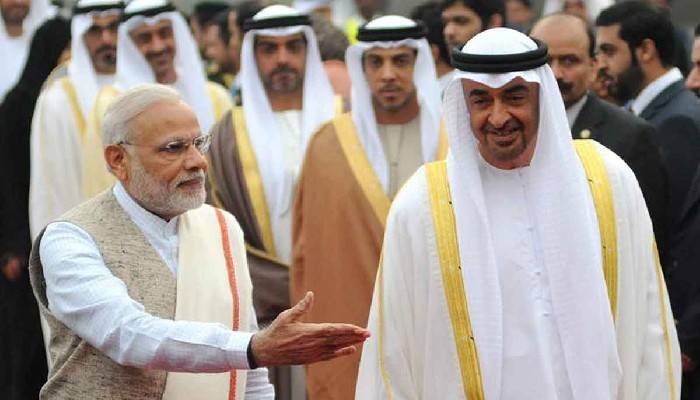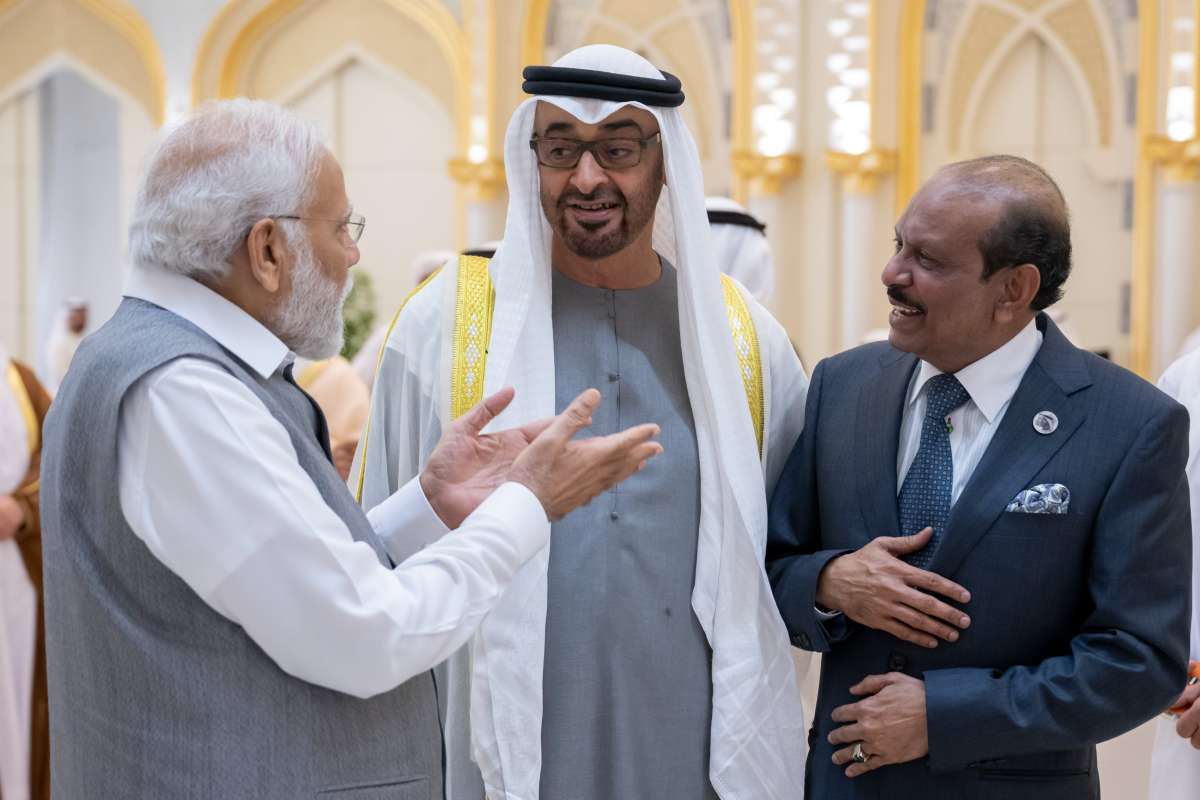The government of India has announced most sectors are now open for 100% Gulf investment via “automatic route” – means entities outside India can invest in the country without prior approval….reports Asian Lite News
Most investible sectors of the Indian economy are now open for 100 percent equity participation under the automatic route for businessmen and enterprises in the Gulf and the rest of the Arab world.
This was stated by Dr. Rajkumar Ranjan Singh, Minister of State for External Affairs, in the Lok Sabha, the lower House of India’s Parliament. “Automatic route” is when entities outside India can invest in the country without prior approval of the government.
“India continues to open up its sectors to global investors from Arab countries and addresses their concerns on regulatory barriers,” Dr. Singh said in answer to Member of Parliament (MP) Rajendra Dhedya Gavit.
The MP asked the Minister “whether the government has intensified efforts to invite business leaders from Arab countries for investing in India, and if so, the core areas wherein the government expects investments from these countries.”
Dr. Singh replied that “there are several government-to-government and business-to-government mechanisms for the Middle East region such as a High-Level Task Force on Investment with UAE, a Strategic Partnership Council with Saudi Arabia and India-Israel CEO Forum. India has extensive ties with Middle East countries in a wide range of sectors including in the fields of trade and investments.”

Additionally, “regular high-level business engagements with the region are held by various Chambers of Commerce and Export Promotion Councils. An India-Arab Partnership Conference on ‘New Horizons in Investment, Trade and Services’ was organised on 11th and 12th July 2023 in New Delhi.”
The MP asked the Minister about the response of Gulf and Arab business leaders to opportunities and the ease of doing business in India.
Dr. Singh said “several Sovereign Wealth Funds from the Middle East have invested in sectors such as food, energy, financial services, health, education, information technology, renewable energy and infrastructure in India.”
Indian residents in Gulf
The resident population of Indians in the Arab world has touched nine million, the Minister of State for External Affairs, V Muraleedharan, earlier said.
Simultaneously, India’s trade with Arab countries has crossed $240 billion.
Muraleedharan said India-Arab relations “have withstood the test of time. Even during the recent pandemic and global geopolitical conflicts, trade between India and the Arab world continued to grow. The region caters to about 60 percent of India’s crude oil imports and more than 50 percent of fertilisers and related products, making our partnership robust and indispensable.”
He said that over generations, India’s large expatriate community in the Arab world has contributed to the prosperity of countries of their residence, their adopted homes.
“A new thrust to our economic engagement is now being provided through entrepreneurship, science and technological collaboration, environmental protection and a greater focus on food and energy security,” the Minister added.

Indian spices in Gulf region
The UAE ranked fourth in the world among the top 12 markets for Indian spices in the fiscal year 2022-23, according to the Spices Board of India.
Spice traders, regulatory authorities, import associations and trade officials from the Gulf will be invited for the 14th World Spice Congress to be held in Mumbai from 15th to 17th September, D Sathiyan, Secretary of the Spices Board, told New Delhi-based foreign correspondents as part of the preparations for the Congress.
Saudi Arabia also figures in the top 12 markets for Indian spices, according to official figures.
World Spice Congress 2023 is being organised on the sidelines of the Group of Twenty (G20) Summit to be held in New Delhi in September, Sathiyan said. “It will provide a platform for the stakeholders to discuss the latest trends in the spice business after the COVID-19 pandemic, emerging challenges and the way forward.”
India produces 75 spices out of the 109 varieties listed by the International Organisation for Standardisation (ISO). In the calendar months of April-May this year, export of Indian spices rose by 40 percent in volume compared to the corresponding months last year, the Spices Board said.
Indian spices are extensively used in Arab cuisine and in South Asian food widely available in the Gulf. They are also used in beverages like tea and coffee in the Gulf.

